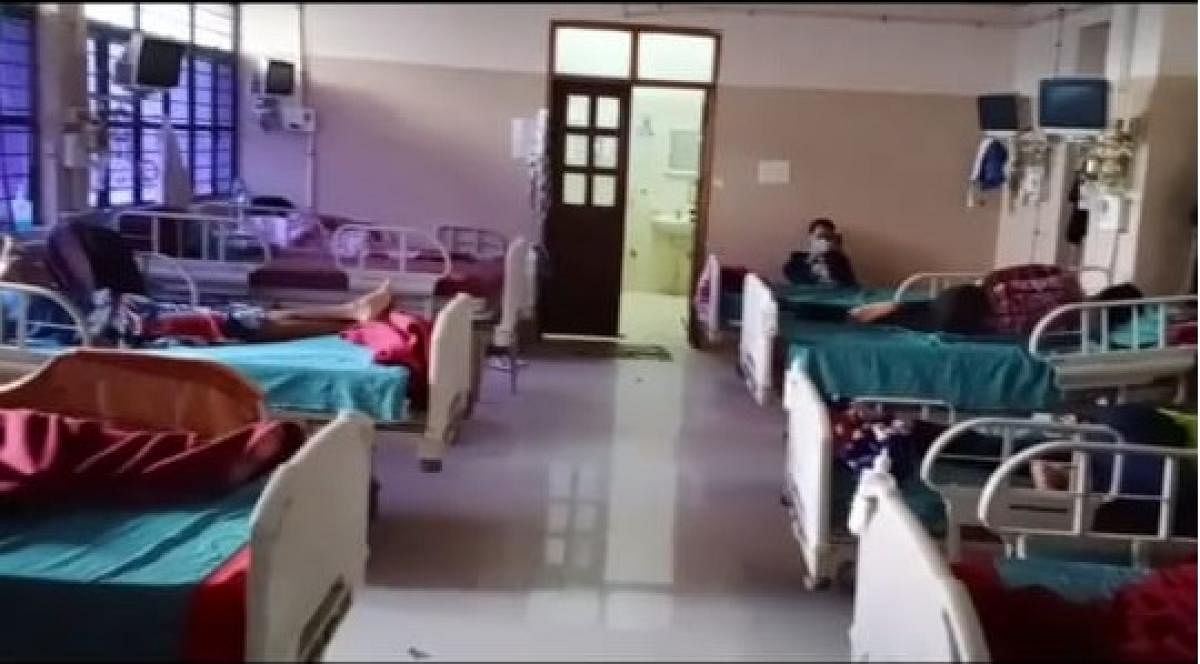

Crayons, carrom and mehendi — Eid arrived with a dash of fun for patients in the Covid-19 ward of Victoria Hospital's Emergency and Trauma Care Centre.
The children got busy with drawings and games, while the women turned competitive with the mehendi cones that were sent to the ward.
"We all celebrated yesterday (Sunday)... I also organised a mehendi competition. All the ladies had fun," exclaimed Asima Banu, the nodal officer for the Emergency and Trauma Care Centre.
There are 96 Covid patients housed on the two floors of the centre. Of them, 88 are asymptomatic, while 14 are children. Initially, the hospital had housed them separately, but families wanted to stay together, so did husbands and wives.
Now, with a doctor, two nurses and a policeman — all under the same roof — they have all developed bonhomie across age groups, professions and communities. Even the discharged patients don't leave the WhatsApp group (created by Asima), which has some 65 members.
Each floor has 58 beds. "We had initially housed men and women on separate floors. But there were families, couples, parents and senior citizens who all requested to stay together. Family support is important for recovery. But ICU patients are in a separate ward," Asima says.
A typical day starts with the patients raising their requests as 'indent', which are usually "small items of everyday use like footwear", according to Asima. "Then they get busy with their interests. There is a medical student who is busy with her assignment, a doctor who reads medical articles online, a staff nurse who reads magazines... Most importantly, they talk to each other," she says.
Team leaders
When new patients arrive, they collectively catalogue their needs. And there are "team leaders" among patients too.
"The patients themselves are helping me in putting together what each one wants. If anyone starts panicking, they try to console them, but if they don't calm down, they inform me. The discharged patients don't leave the WhatsApp group because if one of their relatives is still in the hospital, they would want to keep a tab on him/her," says Asima.
